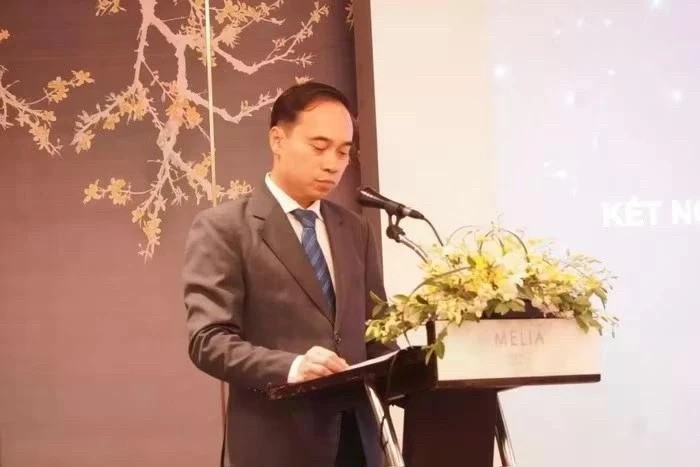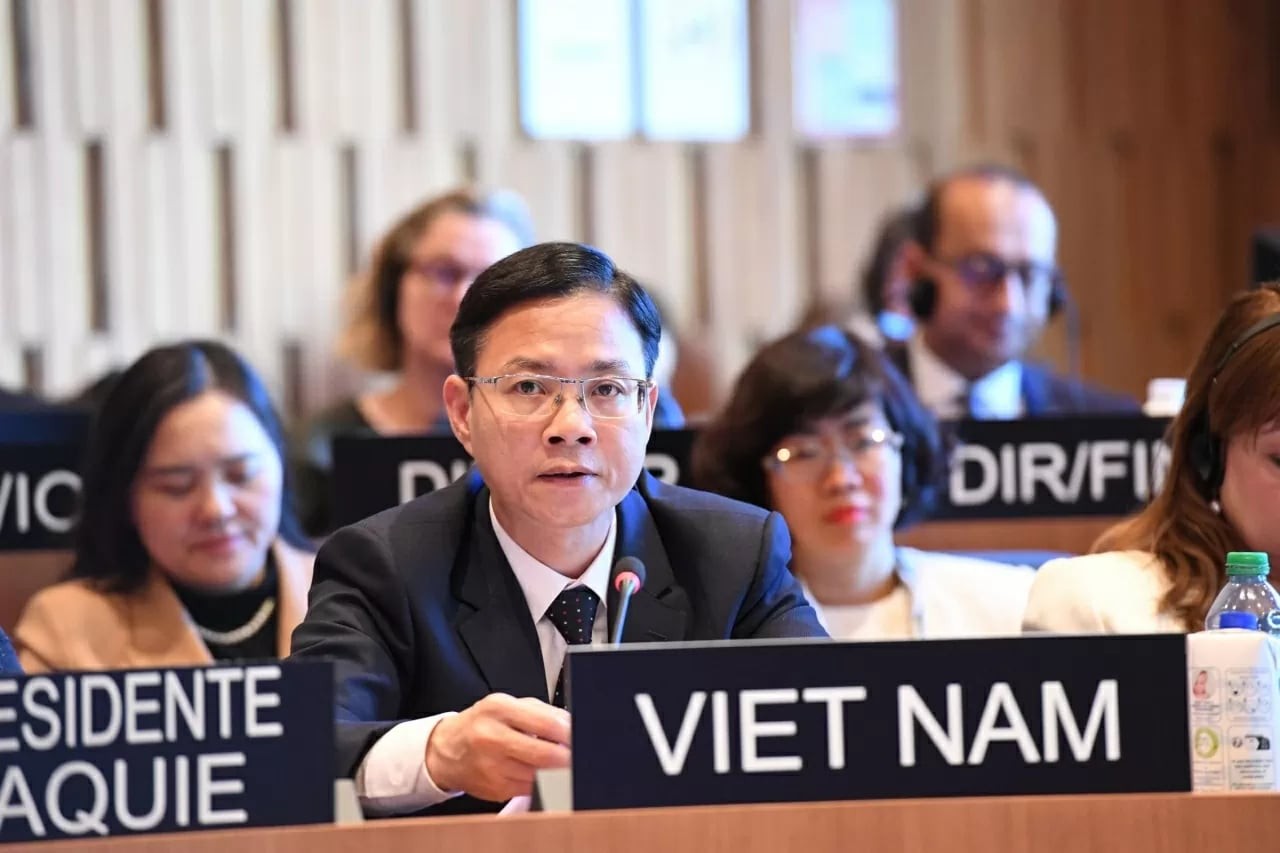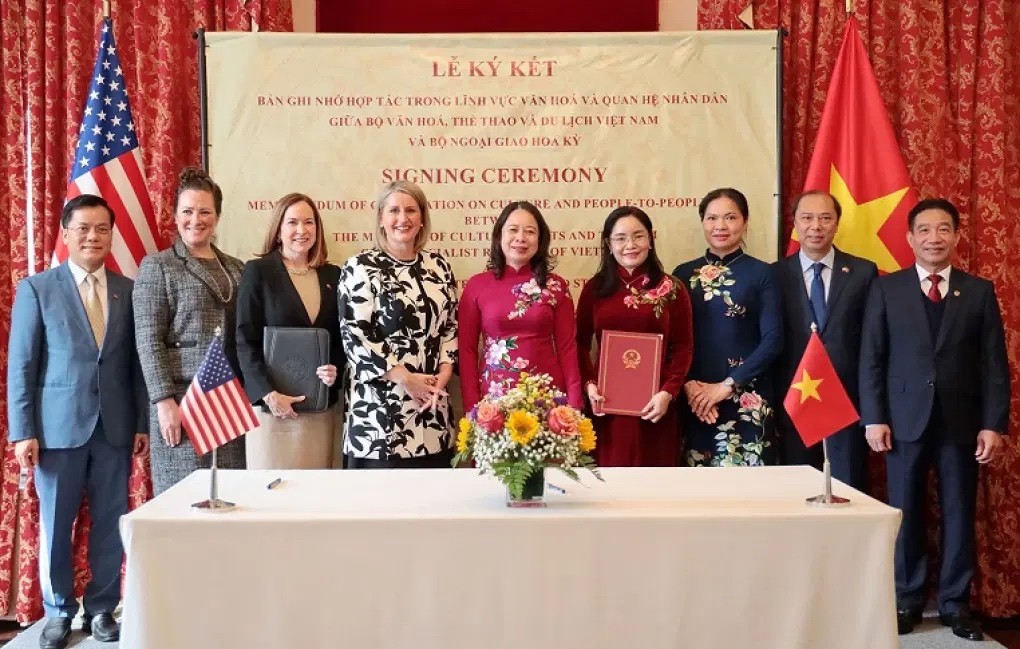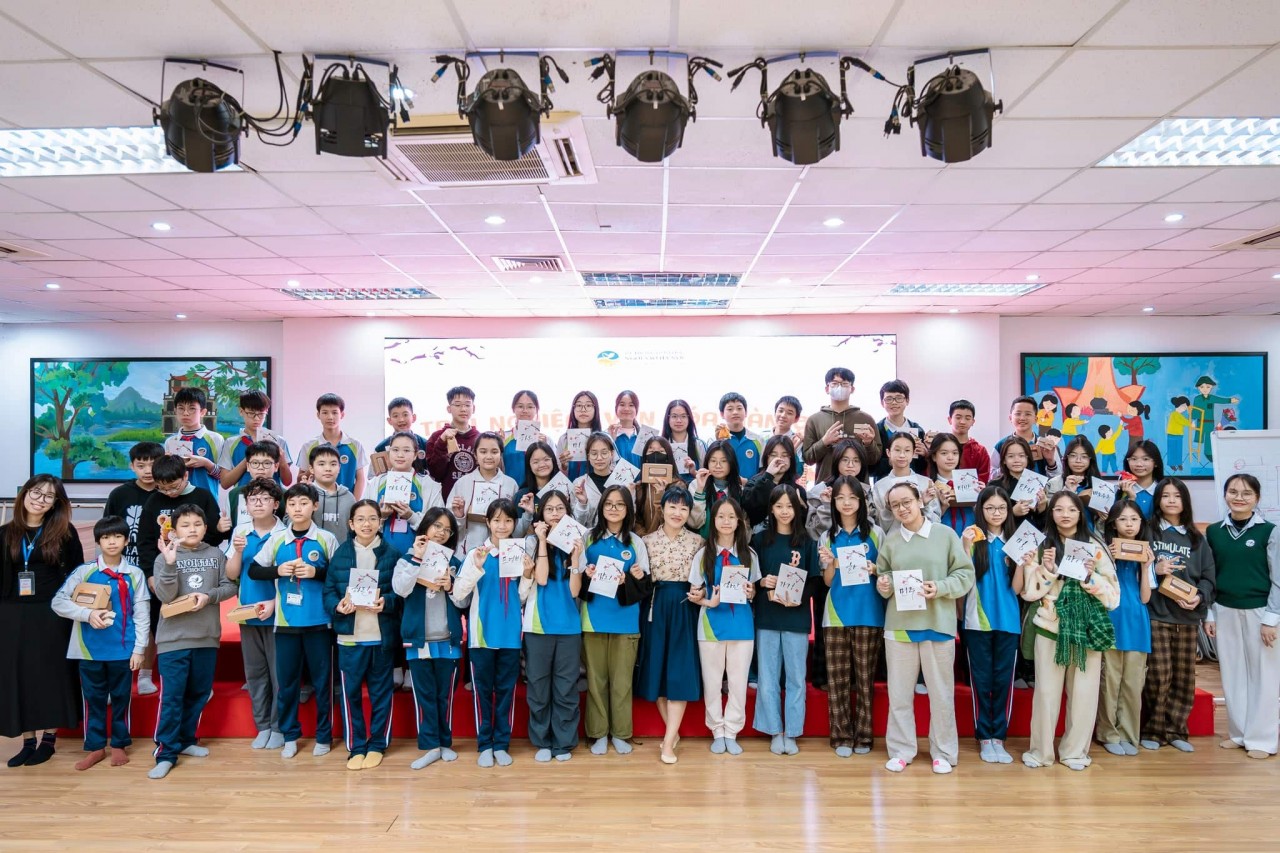Vietnam's Important Contributions to Preservation of Intangible Heritage
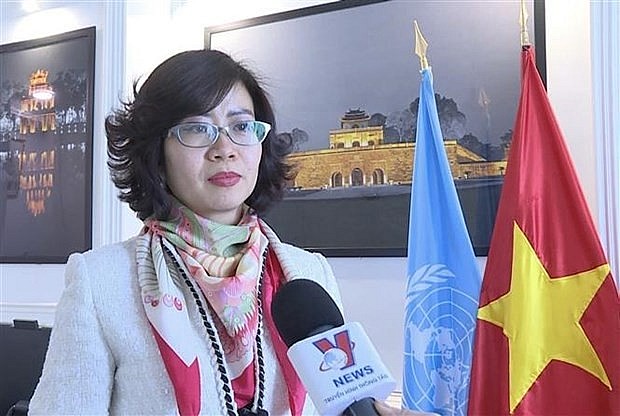 |
On the occasion of the 20 year anniversary of the adoption of the UNESCO Convention for the Safeguarding of the Intangible Cultural Heritage in 2003 (April 18, 2003 - April 18, 2023), Ambassador Le Thi Hong Van, head of Vietnam's delegation to UNESCO shared about Vietnam's contributions in the framework of this treaty.
In 2023, UNESCO celebrates the 20th anniversary of the Convention for the Safeguarding of Intangible Cultural Heritage in 2003. As Head of Vietnam's delegation to UNESCO, how would you rate Vietnam's contributions and achievements in implementing this convention?
The Convention for the Safeguarding of Intangible Cultural Heritage was adopted by UNESCO in 2003 to preserve, and promote the value of intangible cultural heritage in daily life.
It aims to increase awareness and participation of communities, local and national, and promote international cooperation and support in this area.
Vietnam was one of the 30 first states to join this convention, marking the integration, and defining the international role of Vietnam in the field of intangible cultural heritage with UNESCO and countries around the world.
Looking back on the last 20 years since the adoption of the UNESCO Convention for the Safeguarding of the Intangible Cultural Heritage in 2003, Vietnam can be proud of its achievements and active contributions to the implementation of this treaty, not only at the national but also global level.
At the national level, Vietnam made numerous efforts to integrate the treaty's contents and spirit in its laws, programs, and projects related to intangible cultural heritage as well as socio-economic aspects.
Vietnam's experiences, knowledge, and efforts in protecting and promoting intangible cultural heritage in terms of theory, law, and practice are appreciated and are good lessons for many countries regionally and internationally. They contribute to the effective and practical implementation of the convention.
Vietnam has 15 intangible cultural heritages recognized by UNESCO. By effectively protecting and promoting the value of these 15 intangible cultural heritages, Vietnam helped preserve the representative heritage of humanity and those in need of urgent safeguarding.
At the global level, Vietnam made proactive and constructive contributions, especially to the convention's Inter-governmental Committee – the key executive mechanism of the convention.
The country was one of the members elected the earliest to the Inter-governmental Committee, in the 2006 - 2010 tenure.
Last year, Vietnam was elected to the Committee for the term 2022-2026 with the highest number of votes. This has important implications in many ways, demonstrating the country's increasing position and prestige in the international arena, the confidence of the international community in its ability to contribute to global multilateral institutions.
It is a recognition for Vietnam's contributions in preserving, and promoting the value of intangible heritage in the country and in the world. This is the result of Vietnam's comprehensive, extensive and effective foreign policy of multilateralization, diversification and international integration.
Vietnam has 15 intangible cultural heritages recognized by UNESCO. What do you think the meaning of these cultural heritages recognition is?
With 8 world cultural and natural heritages, 15 intangible cultural heritages recognized by UNESCO, Vietnam is proud to be one of the countries with a rich, diverse culture, imbued with national identity, unique characteristics of each region, making an important contribution to the cultural treasure of mankind.
Through recognized heritages, Vietnam has the opportunity to honor the heritage, and appreciate the persistent efforts of the community and artisans in preserving, promoting, and transmitting the value of heritage as a goal that UNESCO is promoting.
Vietnam also introduces the quintessence of national culture, and promotes the image, the country and people of Vietnam develop dynamically, but still rich in tradition and identity.
With recognized heritages, Vietnam also has conditions to enlist support for the international community to join hands to protect and promote heritage values.
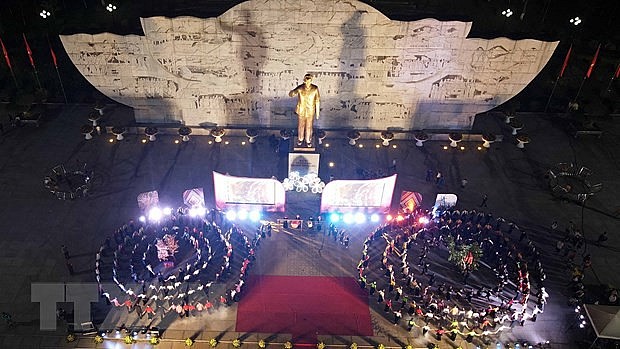 |
| Nearly 500 actors and artists participated in the Xoe Thai performance at the ceremony honoring Xoe Thai. (Photo: Huu Quyet/VNA) |
Vietnam is also deeply aware that heritage recognition is not only a source of pride but also a responsibility of the country, all-level authorities, sectors, localities, and artisans in preserving and bringing into play heritage values.
What do you think we need to do to promote our intangible cultural heritage values?
In my opinion, it is necessary to continue to seriously and effectively implement the National Action Program to protect and promote the value of the heritage in accordance with the commitment to UNESCO.
The preservation and promotion of heritage is not only in the country. We need to let the world know our heritage more, connect more closely and effectively with the country and people of Vietnam. That contributes to promoting exchanges between the nation's traditional culture and human culture.
Vietnam also needs to continue to research and find solutions to preserve and promote heritage values in socio-economic development, especially tourism development closely linked with culture, people and history.
They contribute to turning "heritage" into "asset", turning "potential" into "resource", so that culture and heritage truly become an endogenous force, an important resource for economic development, a sustainable society.
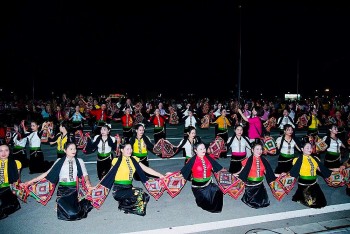 | Art of Xoe Dance of Thai Ethnic People Honoured in Son La Province Xoe dance has become a symbol of hospitality of Thai people and an important cultural imprint of the community in the northwestern mountainous region. |
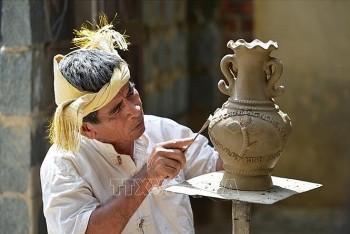 | Cham People’s Pottery Making Art Recognised by UNESCO as Heritage in Need of Urgent Safeguarding Pottery making is considered a demonstration of Cham women’s creativity on the basis of their community’s knowledge. |
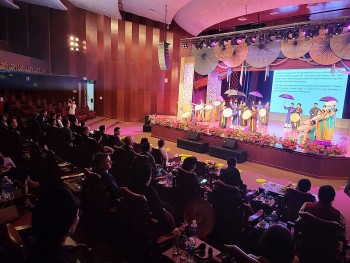 | Foreign Diplomats, Businessmen Learn about Bac Ninh’s Unique Folk Culture The "Learn about Vietnam Day" is an annual event organised by the Ministry of Foreign Affairs since 2015, in order to update the country's socio-economic ... |
Recommended
 Focus
Focus
Vietnam Leaves Imprints on the World Peacekeeping Map
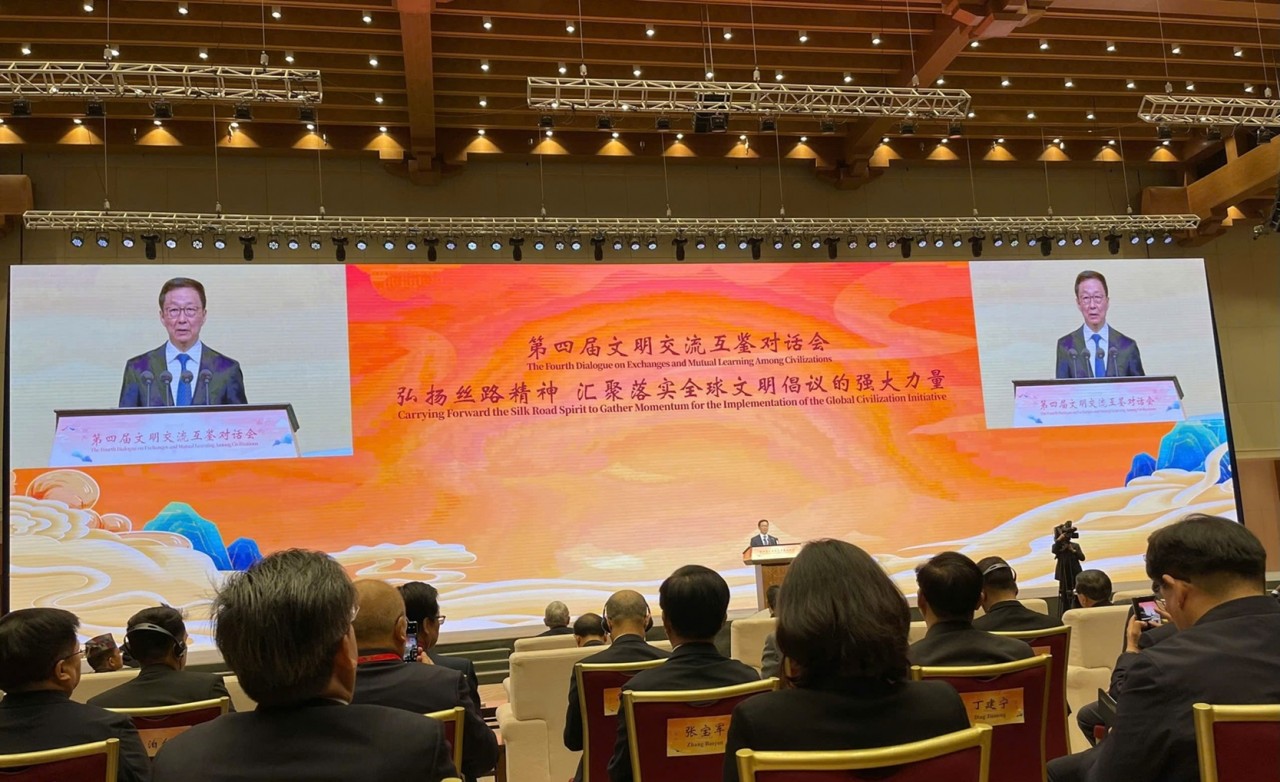 Friendship
Friendship
VUFO Attends Fourth Dialogue on Exchange and Mutual Learning among Civilizations
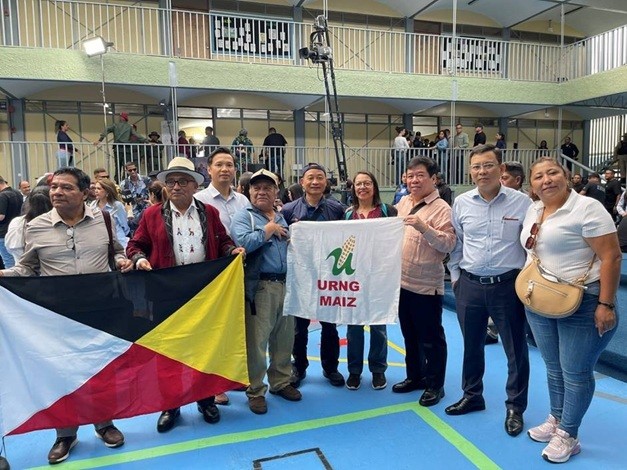 Focus
Focus
Strengthen Solidarity and Friendship Between Vietnam and Venezuela
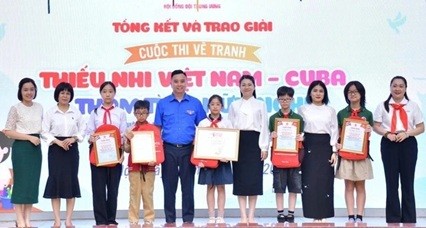 Focus
Focus
"Vietnamese - Cuban Children, Deep Friendship" Painting Contest Announces Winners
Popular article
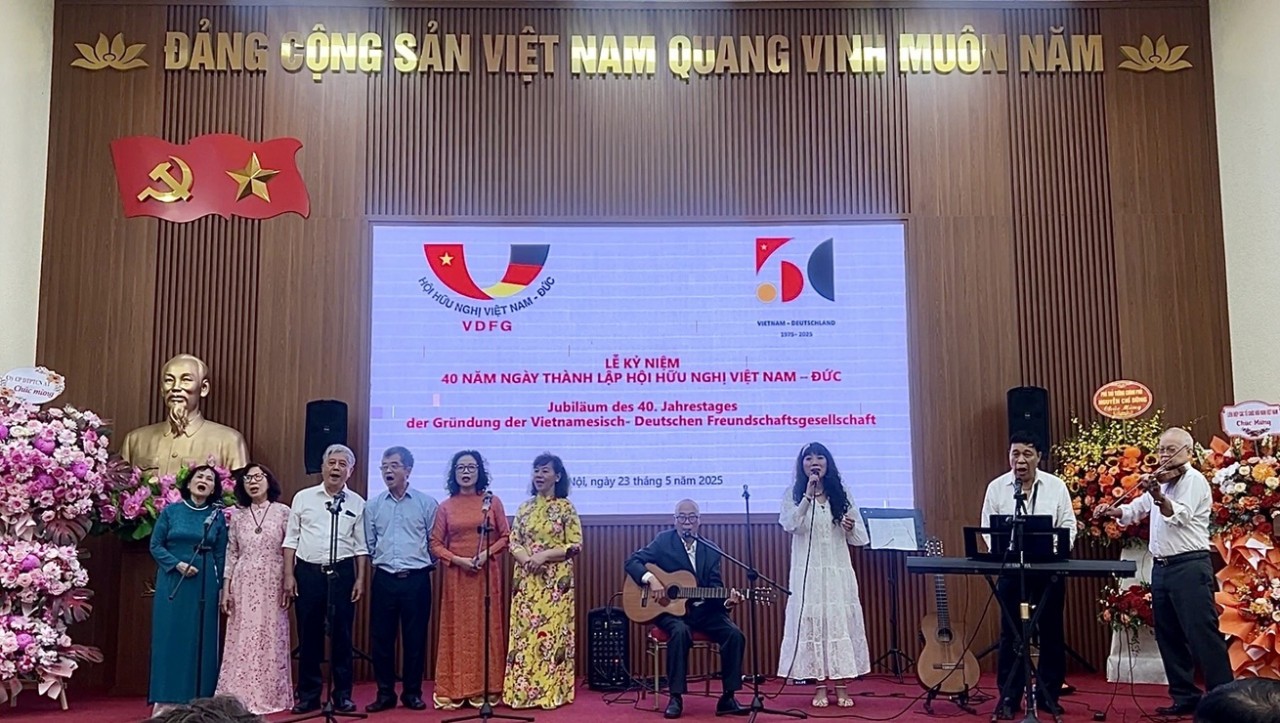 Focus
Focus
Solid Bridge for People-to-people Relations between Vietnam and Germany
 Focus
Focus
35 Years of FES in Vietnam: Fostering Dialogue, Advancing Equity
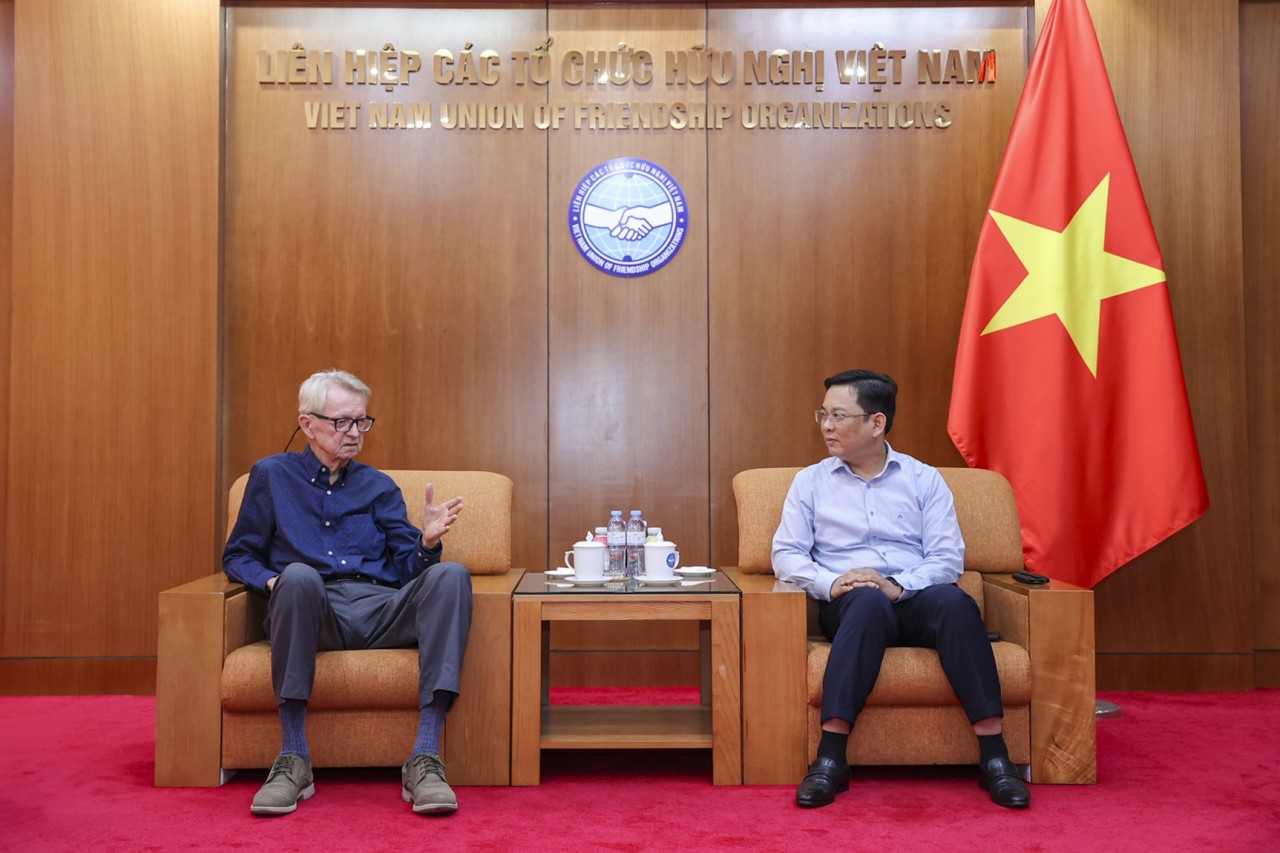 Friendship
Friendship
VUFO Appreciates Contributions of American Veterans in Overcoming Consequences of War
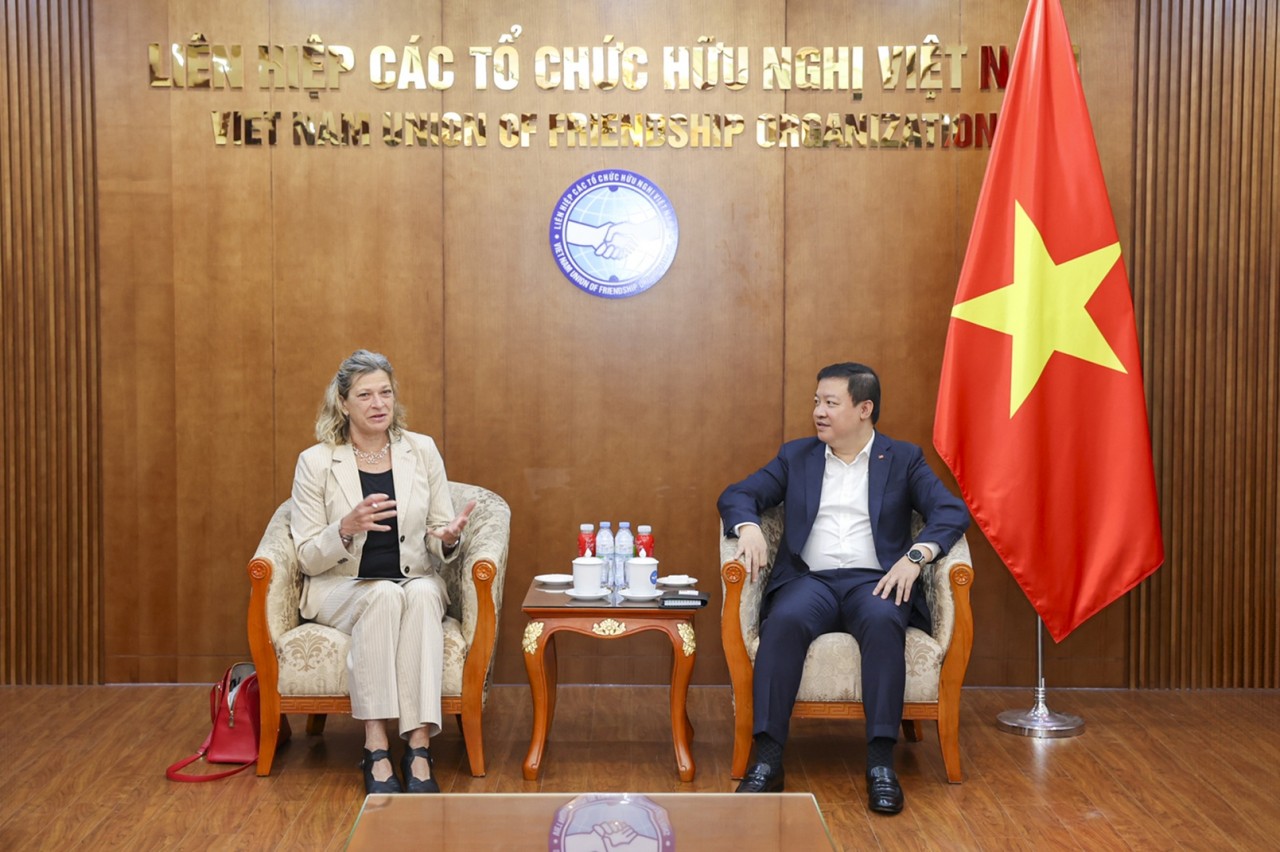 Focus
Focus




